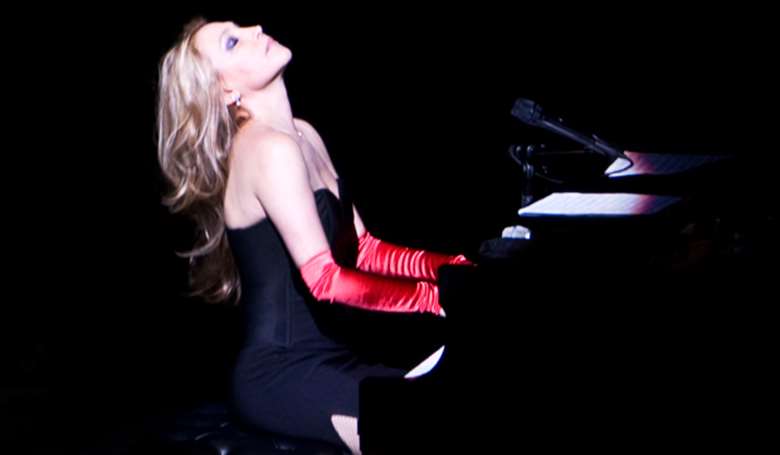Eliane Elias and Ed Motta mix things up at the Barbican
Monday, May 18, 2015
Sometimes seeing jazz gigs feels a bit like trophy hunting.

Everyone has a list of targets, and high up on mine, amid transatlantic migrants and flightless rarities seldom seen in the UK, were the names of two Brazilian keys-playing vocalists.
I discovered Eliane Elias during a year at music college when I transcribed her take on ‘But Not For Me’ from Eliane Elias Sings & Plays Bill Evans and got hooked on her supple sense of swing. Ed Motta’s brand of throwback 1970s soul is an equally serious, if more recent addiction, so the chance of seeing them both was always going to be too good to pass up.
Despite a few issues with the sound, they didn’t disappoint. Both chose to focus on their latest releases – Elias with a set of slinky bossas from her latest album, Made in Brazil, supplemented by Brazilian classics like ‘Chega de Saudade’, ‘Chiclete com Banana’ and ‘So Danço Samba’ and two tracks (‘I Thought About You’ and ‘Embraceable You’) from her 2013 Chet Baker tribute album; and Motta with material from 2013 release AOR, arguably his strongest to date. But both musicians went well beyond the recorded versions.
Switching between piano and Fender Rhodes, Elias played with characteristic elegance, imbuing her lines with a coconut palm sway that matched her languid vocals. Yet there was a gutsiness to her playing too and, as she traded solos with bassist Marc Johnson and energetic drummer Rafael Barata, hunching her shoulders and hammering out octaves, glistening grace notes and bursts of tremolo, she sounded less restrained than she does on record.
Motta left most of the instrumental solos to his ultra tight, globetrotting band, comprising French bassist Laurent Salzard; Finnish guitarist Arto Mäkelä; German keys player Matti Klein and Lisbon-born drummer Miguel Casais, allowing him to focus on the vocals. ‘Simple Guy’ basked in a husky, all encompassing warmth, he chewed up the lyrics to ‘Smile’ and growled and whooped through ‘Dondi’, pouting and grimacing with delight.
Gems from his back catalogue got similarly inventive treatment. The urgent bass groove and zappy, sci-fi synth lines of ‘Drive Me Crazy’ were gloriously rendered and ‘My Rules’ became an extended beatboxing breakdown, in which he gnashed his teeth and imitated drum machines, stomach churning bass vocoders, backing vocals and horn lines.
What really stood out though, in both performances, was passion for the music and the milieu in which it was produced. Elias’ set was interwoven with reflections on the beauty of the coastal region of Bahia, anecdotes about Antônio Carlos Jobim’s legendary womanising and biographies of lesser-known songwriters. I didn’t know that Chet Baker’s unaffected vocals and habit of phrasing across the barline was an influence on pioneers of the bossa nova or that Elias first toured with Jobim when she was just 17.
There was a beguiling eccentricity to Motta’s conversation and he seemed most at home joking with the Brazilians in the crowd and persuading them that ‘Colombina’ was a better choice of encore than ‘Manuel’, one of his best-loved tracks. In between, he paid tribute to Dom Salvador (“the first musician to mix jazz, soul and samba”), explained that AOR stands for Adult Oriented Rock, a 1970s sub genre that he worships but playfully derides, and expounded on his love for Magnum P.I., a shining example of “AOR lifestyle” and one of a number of TV theme tunes that have influenced the album.
It would have been nice if the two musicians had played together – Motta features on ‘Vida’, the seventh track on Made In Brazil so that would have been the obvious choice – but I can’t grumble. This was still a dream way to kill two birds with one stone.
– Thomas Rees @ThomasNRees